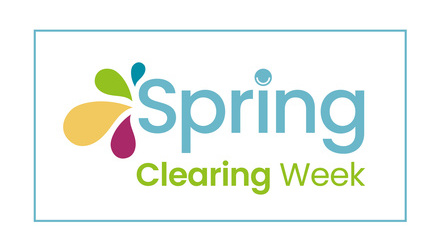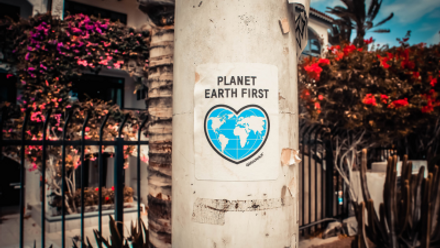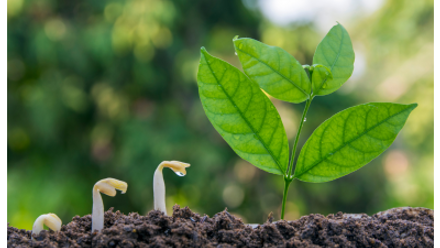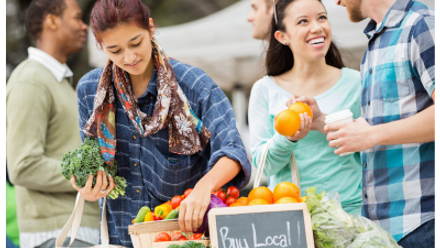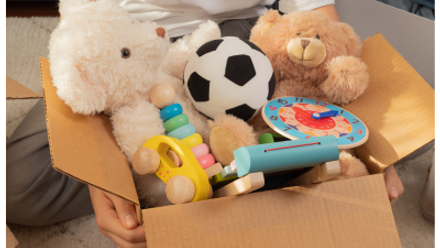New Beginnings for our things
Bringing a New Lease of Life to the Things We Throw Out
3 minute read
Many of us want to be eco-conscious and we strive to make mindful choices every day. We think about what to eat, how and where to shop, and how our choices affect the planet. But when it comes to decluttering, do we extend the same thoughtful approach to the task? Letting go of possessions should not mean adding to landfills: instead, it’s an opportunity to give items a second life and align homes with personal values.
New beginnings are not just for people: they’re for belongings, too. By rethinking how to part with possessions, decluttering can be turned into a practice of sustainability, responsibility and care.
Reframing Decluttering: From ‘Getting Rid of’ to ‘Giving Purpose to’
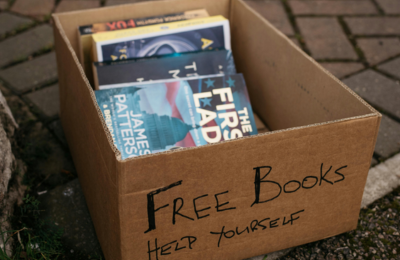
All too often, decluttering is associated with ‘getting rid of’ things. This mindset can not only lead to guilt, unnecessary waste and a sense of loss but it can make the letting go even harder. Instead, let’s reframe the process as ‘giving things a new purpose’. Nearly every item that is released from our home has the potential to serve someone else, be repurposed creatively or be recycled responsibly.
By shifting the language and perspective, decluttering can be transformed from a guilt-ridden task into a conscious act of sustainability and generosity. This reframe can also make the decision-making process easier.
Sustainable Offloading: Where Do the Items Go?
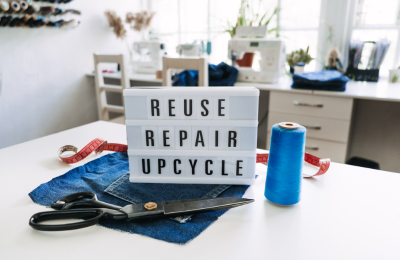
When parting with items, it’s important to be mindful that they are passed on in the most ethical and eco-friendly ways possible. Consider these options:
- Charities and shelters: Donate useful items to organisations that directly help those in need or support an important personal cause.
- Upcycling and repair initiatives: Support businesses and individuals who breathe new life into old goods. Free repair cafés are popping all over the country.
- Community swaps and Buy Nothing groups: Keep items circulating within local networks and reduce overall consumption. Facebook is a popular platform to find these groups or Freecycle can be a useful place to post items, too.
- Recycling programmes: Research how to responsibly dispose of textiles, electronics and other hard-to-recycle materials. These initiatives are becoming more numerous as more of us become aware about what can be saved from landfill.
Taking the time to find the right next home for decluttered items ensures that clutter is not just being shifted out of homes but actively contributing to a more circular economy.
Cultivating a Healthier Relationship with Belongings
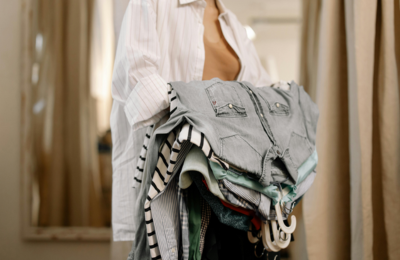
Clutter isn’t just physical—it’s very emotional. Holding on to items out of fear, guilt, nostalgia or a sense of obligation is not good for us and this mindset can be a barrier to letting things go. By approaching decluttering with intention, it can provide:
- Trust in abundance, rather than holding on to excess out of a scarcity mindset.
- The role of being a caretaker, choosing quality over quantity in what is brought into our homes and lives.
- An opportunity to make mindful decisions, ensuring that what is kept truly adds value to our home and personal well-being.
Decluttering with sustainability in mind helps us break free from wasteful habits and allows us to embrace a lifestyle that is both lighter and greener.
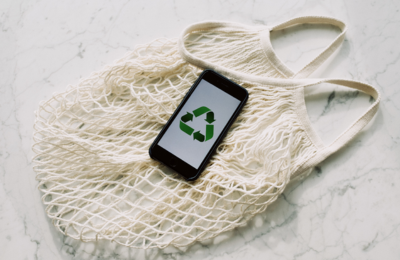
Leading by Example
All individuals’ choices create ripple effects. When eco-conscious decluttering habits are adopted, it inspires others to do the same. Small steps—choosing reusable storage solutions, repurposing items or sharing knowledge of ethical offloading—can make a significant difference in all communities.
A Call to Action for Eco-Conscious Readers
Let’s redefine what it means to let go. Rather than simply discarding, let’s commit to passing things on with intention and care. The more sustainability is integrated into decluttering habits, the more we will contribute to a healthier planet and a more mindful way of living.
How do you ensure your decluttering efforts align with your eco-conscious values? Let’s start a conversation and inspire each other to take our sustainability efforts even further!

